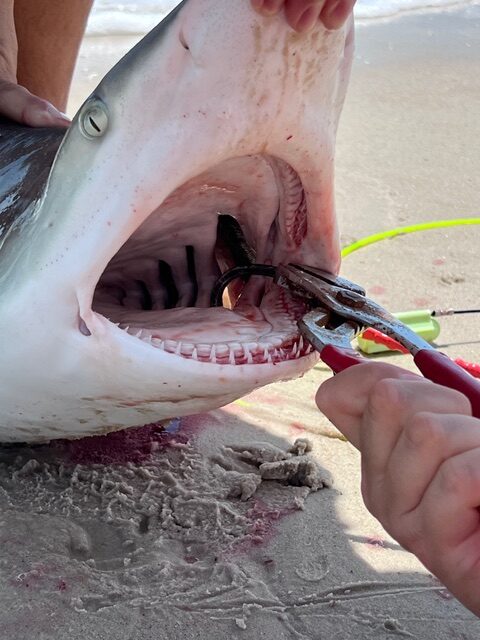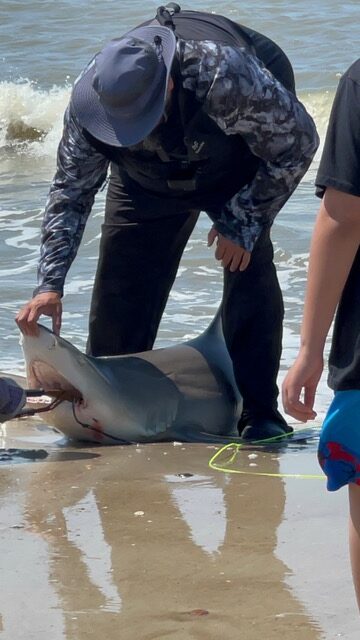Shark Tagging Expedition in Port Saint Joe: August 2024 Observations
In early August 2024, a team of shark researchers conducted a field study in Port Saint Joe, Florida, to tag and monitor local shark populations. This expedition encountered several challenges, including the passage of Hurricane Debbie. Despite these obstacles, the team gathered valuable data on shark behavior and environmental changes.
Initial Observations Before the Hurricane
The team began their research with one day of normal operations, which allowed them to collect preliminary data on the local marine environment. The calm water conditions made it easier for researchers to navigate and study the area. They observed a high concentration of catfish in the turbid waters, indicating a productive ecosystem. During this period, the team captured several blacktip sharks that were smaller than average, likely juveniles. These sharks were found 100 to 150 yards from the shoreline, and the researchers used frozen mullet as bait. The sharks displayed heightened activity between 12 PM and 3 PM, corresponding with water temperatures around 90 degrees Fahrenheit. The surface temperature of the water matched these conditions, further highlighting the unusually warm environment.

Effects of Hurricane Debbie on Marine Environment
As Hurricane Debbie approached, the ocean’s conditions rapidly deteriorated, prompting the team to suspend all activities to maintain safety. Before the storm hit, the researchers secured boxes of Bonita carcasses, a bait known for its potent scent that effectively attracts sharks. This involved a hazardous trip into the path of the hurricane to obtain the bait, but the team returned safely to their research base.
After the hurricane passed, the team observed significant alterations in the underwater landscape. Two days after the storm, they resumed their work and found the ocean floor drastically changed, with numerous holes up to two feet deep scattered throughout. These changes, likely caused by the hurricane’s strong surge, made traversing the seabed hazardous. Additionally, the surface temperature had increased to the 110s, creating extremely harsh working conditions for the team.
Post-Hurricane Shark Activity and Challenges
Following the hurricane, the team conducted two fishing sessions to continue their research. The first session, held from 11 AM to 1 PM, yielded minimal activity. Even with the use of fresh Bonita bait, few sharks were caught, and crabs quickly consumed the bait within one to two hours. The second session, which took place from 5 PM to 9 PM, involved fishing at both shallow and deeper distances from the shore. Most activity occurred at the shorter distance, 150 yards from shore, where smaller blacktip sharks attempted to take the bait but were unable to swallow it. This behavior suggests a predominance of juvenile sharks in the area, consistent with earlier observations of smaller-than-average blacktip sharks.
Implications for Future Shark Research
The August 2024 expedition to Port Saint Joe provided critical insights into the behavior of blacktip sharks and the impact of environmental disturbances like hurricanes on marine ecosystems. The researchers’ ability to adapt their methods in response to challenging conditions demonstrates the resilience necessary for successful marine fieldwork. Future research should focus on the long-term effects of such disturbances on shark populations and their habitats, especially considering the observed changes in the ocean floor and altered shark behavior.

